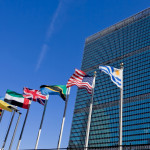Insecurity In Northern Nigeria Is Affecting Health Care Programmes -Experts
Latest Headlines, News Wednesday, May 21st, 2014
Kayode Adelowokan
Experts in the public and community health care has identified the high level of insecurity in the North Eastern part of Nigeria as a major challenge affecting the implementation and monitoring of public and community healthcare intervention programmes.
The experts said insecurity occasioned by the insurgency of Boko Haram in the North East is adversely affecting the design and implementation of public and community health care programmes.
Speaking yesterday in Lagos at the unveiling of an online exchange platform: “Nigeria Springboard for health communication”, Dr Mojisola Odeku, who is project director, Nigerian Urban Reproductive Health Initiative and Mr Yemi Abodurin, programme officer, Centre for Communication Programmes Nigeria (CCPN), said government need to step up efforts to protect people living in high prone crisis areas in the North East to ensure that health care intervention programmes are not thwarted.
In particular, Dr Odeku said the rising insurgency in the North East is forcing many Nigerian to migrate to Abuja, thereby over stretching the available public and community health care facilities.
She said if security measures are not put in place to guarantee the safety of health care officials and facilitators, the increasing migration rate into Abuja would become a major challenge for government.
She canvassed the establishment of more public and community health care centres and outreach in satellite towns around Abuja to cater for the rising number of migrants.
She said if crowd control and community engagement programmes are not put in place, the implementation of intervention programmes by donor organisations bordering on women and child health would be threatened.
She said adequate monitoring of intervention programmes as well as design of health care programmes could only be carried out in a secured atmosphere.
Odeku said in the past few years efforts by demographers in the public and community health care to gauge the progress of interventionist programmes have been hampered by insecurity in some states in the North East on account of the activities of insurgents.
She said government should step up efforts to improve security in the affected states, so that beneficiaries of public and community health care programmes are not isolated in key programmes on infant and maternal mortality.
Also speaking, Dr Babatunde Fakunle, regional community manager, sub – Saharan Africa, Shell Petroleum Development Company, canvassed the involvement of private sector players in the provision of public and community healthcare programmes and projects, affirming that organisations should put people first before profit.
Fakunle said though provision of primary health care is the responsibility of government, but private companies have to intervene to tackle gaps in the matters of health care for Nigerians.
He said there are opportunities for private companies to intervene in the health care system by pioneering health insurance schemes, which would reduce the cost of public and community healthcare in operating environment.
He said, “This is why we are developing a model for community health insurance in focal communities.”
Related Posts
Short URL: https://www.africanexaminer.com/?p=11649






















